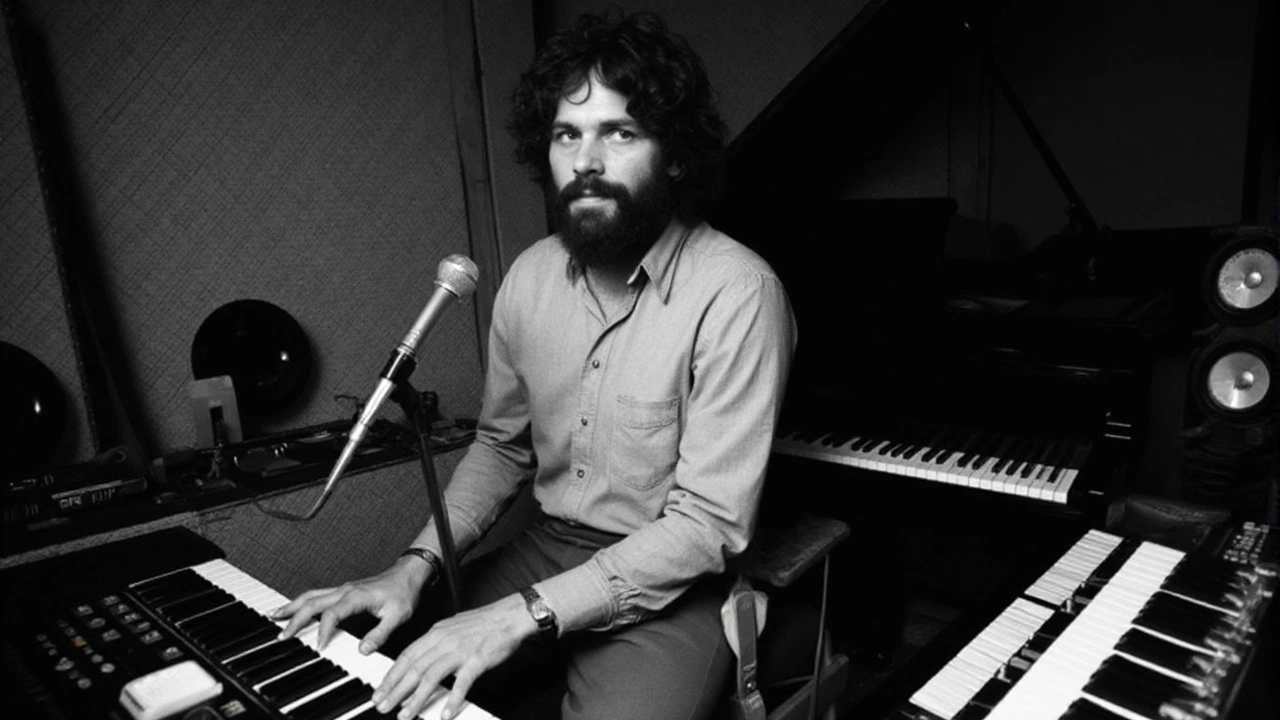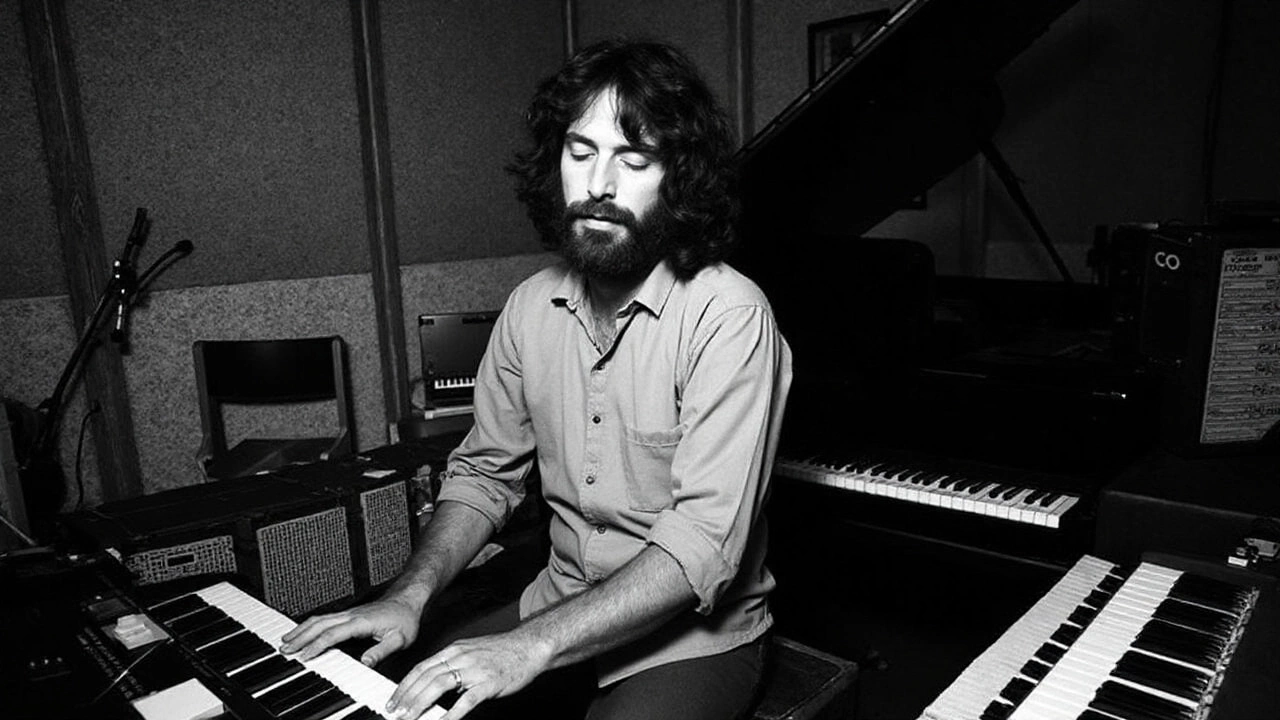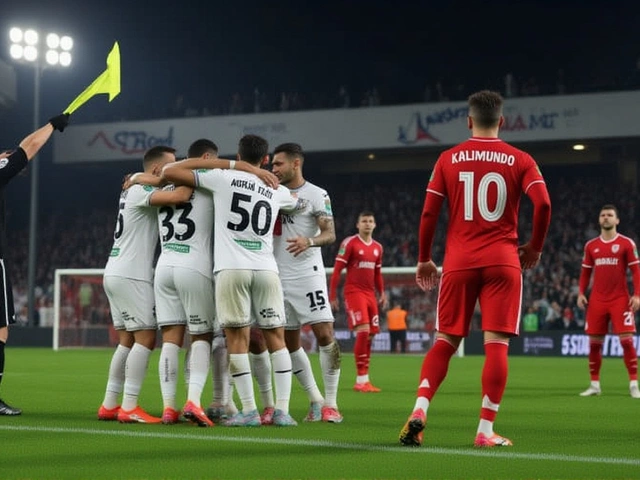Rick Davies, Supertramp Co-Founder and Voice Behind 'Goodbye Stranger,' Dies at 81
Supertramp's co-founder remembered
Rick Davies, the co-founder, lead vocalist, and keyboardist of Supertramp, died on September 5, 2025, at his home in East Hampton, New York. He was 81. The cause was multiple myeloma, a blood cancer he had lived with for more than a decade. His death closes a defining chapter in British rock—one that mixed jazz, blues, and progressive pop with a sharp, sardonic edge.
Born Richard Davies on July 22, 1944, in Swindon, England, he fell for rhythm first—blues and jazz phrasing shaped the way he sat behind the keys. In the late 1960s, after a run through local groups and a stint in the continental club circuit, Davies set out to build a new band with big ideas. With early backing from Dutch financier Stanley August Miesegaes, he formed Supertramp in 1969, a project that took a couple of albums to find itself and then exploded.
The group’s identity clicked when Davies paired his husky, blues-warmed baritone with Roger Hodgson’s bright tenor. That dual-frontman setup—two writers, two contrasting voices—became the band’s calling card. Davies worked largely from the Wurlitzer electric piano, giving songs a gritty, percussive sparkle, and leaned into lyrics that felt worldly, skeptical, and sometimes bitingly funny. Hodgson brought airy optimism and melodic lift. Together, they made music that was both heady and radio-ready.
By 1974, the band had its breakthrough with Crime of the Century. It established the sleek, cinematic sweep that would carry Supertramp through arenas. The push-pull was right there: Hodgson’s “Dreamer” and Davies’ “Bloody Well Right” sharing space, showing how two perspectives could power one sound. The lineup—Davies, Hodgson, sax-and-woodwinds ace John Helliwell, bassist Dougie Thomson, and drummer Bob Siebenberg—locked in.
Momentum kept building with Crisis? What Crisis? (1975) and Even in the Quietest Moments… (1977). Then came the juggernaut. In 1979, Breakfast in America topped charts in the U.S. and Canada, won two Grammys, and ultimately sold more than 18 million copies worldwide. “The Logical Song,” “Goodbye Stranger,” “Take the Long Way Home,” and the title track turned into a run of singles that felt unavoidable, the kind of records that stitched themselves into daily life—the car radio, the mall speakers, the late-night DJ’s last set.
Davies’ writing anchored the band’s darker corners and its grooves. His catalog inside Supertramp is deep and distinctive, often built on that biting Wurlitzer chime and a rhythm-section pocket that could roll for miles. Among his signature performances:
- “Rudy”
- “Bloody Well Right”
- “Crime of the Century”
- “Ain’t Nobody But Me”
- “From Now On”
- “Gone Hollywood”
- “Goodbye Stranger” (with Davies using a sly falsetto lift)
- “Just Another Nervous Wreck”
- “My Kind of Lady”
- “Cannonball”
- “I’m Beggin’ You”
Hodgson left the band in 1983, and Davies took the lead role without blinking. Brother Where You Bound (1985) stretched into long-form pieces, and the single “Cannonball” showed he could still build a hook and a groove that cut through rock radio. Free as a Bird (1987) chased a sleeker, synth-brushed sound, and while the broader pop tides were shifting, Davies kept finding ways to bend the band’s language without losing its center.
Supertramp disbanded in 1988, regrouped under Davies in 1996, and settled into a second life built on craft and consistency. Some Things Never Change (1997) and Slow Motion (2002) proved there was still plenty of song left in the tank, and the band remained a reliable live draw into the next decade. Their final performance came in Madrid in 2012. A planned 2015 tour was canceled after Davies’ multiple myeloma diagnosis became public. He stepped back from international touring and focused on treatment.
Multiple myeloma affects plasma cells in the bone marrow; it can weaken bones, cause anemia, and leave patients vulnerable to infections. It’s a tough, up-and-down illness. Friends and collaborators describe Davies as stubbornly resilient through it—determined, private, and still happiest at a keyboard. Away from the global stage, he kept playing around his adopted home on the East End of Long Island with a local outfit dubbed Ricky and the Rockets. Small rooms, familiar faces, the same time-tested touch.
At the center of his life was Sue, his wife since 1977 and, from 1984 on, Supertramp’s manager. Their partnership outlasted chart cycles and industry trends. She helped steer the band through reunions, reissues, and the never-ending logistics of a legacy act. Colleagues often noted how the duo’s steady approach kept Supertramp’s business and reputation intact even as the landscape shifted around them.
Davies also ran Rick Davies Productions, which holds the copyright in Supertramp’s recordings. Legal rights aren’t glamorous, but they shape how a band’s work lives on—who can remaster the albums, how live archives get curated, which versions end up on future anthologies. Through every lineup change and hiatus, Davies remained the one constant, the keeper of the band’s tone and the steward of its catalog.
His influence reaches beyond rock radio. You can hear Supertramp’s fingerprints in bands that blend pop gloss with prog structures, in the way saxophone and keys are used as equal storytellers, and in artists who aren’t afraid to pit cynicism against sweetness in the same track. Pieces of their work keep resurfacing: the hook from “Breakfast in America” became the chorus of a 2000s pop hit, and “The Logical Song” has been flipped into dance-floor fuel. These echoes survive because the melodies are sturdy and the writing cuts clean.
Within the band, each personality had its role. Helliwell’s lyrical reeds and clear-tone sax runs framed Davies’ piano; Thomson’s bass lines and Siebenberg’s drumming gave the songs an elastic spine. Davies thrived in that interplay. He wasn’t a showboat. He dug in, locked the groove, and let the arrangement carry the emotion—then punctured the mood with a one-liner that hit harder than a rant.
His singing style was unmistakable: a raspy, grounded baritone that could lean into irony but also find tenderness without turning sugary. On stage, he stayed cool and centered; on record, he sounded like the guy at the next bar stool who’d seen enough to be wary, but not so much that he’d stopped caring. Even when he slipped into falsetto—“Goodbye Stranger,” “My Kind of Lady”—the move felt like a wink, not a costume change.

A life in songs, a legacy in motion
Supertramp’s catalog remains one of rock’s most durable. Crime of the Century plays like a film; Even in the Quietest Moments… feels like a postcard from the mountains; Breakfast in America is a neon city viewed from a window seat. Through all of it, Davies favored structure and swing, chords that move with purpose, and rhythm parts that refuse to sit still. That’s why the songs still land on FM playlists and in new listeners’ feeds—elegant writing, built to last.
He kept his public statements sparse and avoided the celebrity churn. The work did the talking. You can map his career through songs more than interviews: the bruised humor in “Bloody Well Right,” the anxious rush of “Just Another Nervous Wreck,” the wide-lens storytelling in “Gone Hollywood,” the late-career pulse of “Cannonball.” The arc is clear—curious musician becomes bandleader, bandleader becomes archivist, archivist becomes elder statesman.
Key milestones that shaped Davies’ path and Supertramp’s rise:
- 1969: Co-founds Supertramp in London.
- 1970–1971: Early albums establish the template but not yet the audience.
- 1974: Crime of the Century breaks through; the classic lineup solidifies.
- 1979: Breakfast in America tops charts in North America; two Grammys follow.
- 1983: Hodgson departs; Davies leads the band forward.
- 1988: Band disbands after a long run; archives and rights take on new importance.
- 1996–2002: Revival yields touring and two studio albums, including Some Things Never Change and Slow Motion.
- 2012: Final performance in Madrid caps a late-career touring chapter.
- 2015: Multiple myeloma diagnosis forces tour cancellation; Davies steps back.
- 2025: Dies at home in East Hampton at 81, leaving a catalog still in heavy circulation.
The story of Rick Davies isn’t just about hits. It’s about a bandleader who engineered a sound where melody and muscle coexisted, who trusted the tension between two writers, and who kept the flame burning long after the spotlight cooled. The songs remain—sharp, singable, and stubbornly alive.






